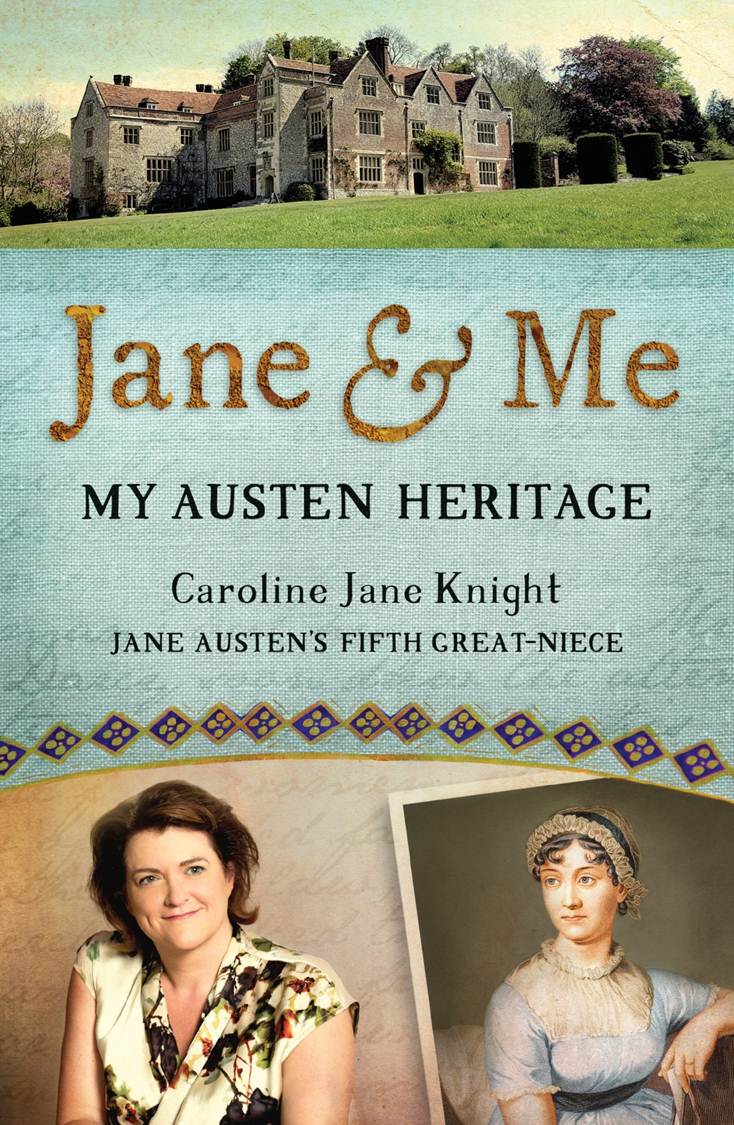Why Jane Austen never married
Jane Austen received one proposal of marriage which she accepted, so why did she never marry?
In December 1802, Jane was visiting some childhood friends in Manydown House near Steventon and received a proposal of marriage from her friend’s younger brother, Harris Bigg-Wither, who was nearly six years Jane’s junior.
I remember Granny (Elizabeth Knight, wife of Edward Knight III, the 15th Squire of Chawton and Edward Austen's great great grandson) telling me the story about great-aunt Jane’s only marriage proposal when I was a girl. Oh, how we laughed at how different it would have sounded—Pride and Prejudice by Jane Bigg-Wither, although there would have been little chance of her devoting her time to writing had she married.
Jane accepted the proposal, and the house celebrated. After what must have been a sleepless night, Jane changed her mind and withdrew her acceptance the next morning. Jane shared a bedroom with Cassandra, as she had all her life. I have always wanted to know why Jane changed her mind—it was such a pivotal decision for Jane’s future and our family heritage. But Granny said no one would ever be certain what Jane thought, except perhaps Cassandra, who no doubt had talked it through with Jane overnight. How I wished I could go back in time and listen to their conversation.
The marriage would have offered Jane a secure future, as Harris Bigg-Wither had become heir following the death of his elder brother. Jane would have eventually become the mistress of Manydown House, an ancient manor dating back to the fourteenth century, surrounded by 1,500 acres of parklands and 400 acres of plantations. Manydown was not far from Steventon, so the marriage would also have returned Jane to the Hampshire countryside (her father had moved them to Bath the previous year).
Manydown House (Picture credit: lostheritage.org.uk)
Caroline Austen, daughter of Jane’s brother James, described Harris as not attractive—he was a large, plain-looking man, aggressive and almost completely tactless in conversation, hardly a good match for Jane! But a marriage to Bigg-Wither would have offered relief from poverty, a stately home, security for her parents and sister, and many advantageous associations for her brothers. Jane had a choice: all the practical advantages and lifelong security that would result from marrying a man she didn’t love or remaining in Bath in relative poverty with no imminent prospects of her or her parents’ situation improving. Jane had no way of knowing whether she would receive another offer of marriage. They had been in Bath for only a year, so perhaps she thought there would be other opportunities for marriage, or perhaps she loved someone else. If Jane were in love, I don’t think it was with Tom Lefroy, who she had supposedly fallen for six years earlier in Steventon as a book by Montagu Knight (the 13th Squire of Chawton), Chawton Manor and It’s Owners – A Family Record, published in 1911, tells a different story:
"In the early years of her womanhood she had composed at all events the first drafts of three of the six novels on which her fame rests. … Then follow six or eight years of almost absolute silence. Shortly before the beginning of this period occurred, probably, the one romance of her life. We have it on the authority of her sister that about that time Jane met in the West of England a young man between whom and herself was formed a mutual bond of attachment, soon to be snapped asunder by his death."
There was no mention of Tom Lefroy.
Jane Austen as shown in 'Chawton Manor and It's Owners - A Family Record' by Montagu George Knight and William Austen Leigh, 1911. Image copyright: Caroline Jane Knight
Granny and I pondered Jane’s decision. Perhaps Jane had known that marriage would bring responsibilities that would consume her time and make it more difficult for her to write, and perhaps she was not prepared to make that sacrifice.
We will never be sure of Jane’s reasons, but in a letter to Fanny Knight, who had asked for advice about a serious relationship, Jane wrote, ‘having written so much on one side of the question, I shall now turn around & entreat you not to commit yourself farther, & not to think of accepting him unless you really do like him. Anything is to be preferred or endured rather than marrying without affection.’ Jane had the determination to follow her heart against the expectations of her friends and family, and I admired her courage. Jane wanted marriage to be a consequence of love, not a means to material security. Jane lived at a time when women were not encouraged to write professionally or earn an income, but Jane did not bow to pressure. She didn’t need someone else to secure her future; she would secure her own.
This was the only proposal Jane ever received – she never received an offer from someone she admired, so we will never know if she would have refused any offer of marriage, or just one from a man she couldn’t love.
Caroline
Caroline Jane Knight is Jane Austen's fifth great-niece and the last Austen to grow up at Chawton House on the ancestral estate where Jane herself lived and wrote.



